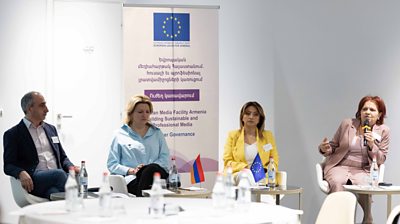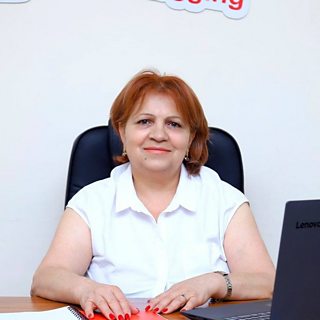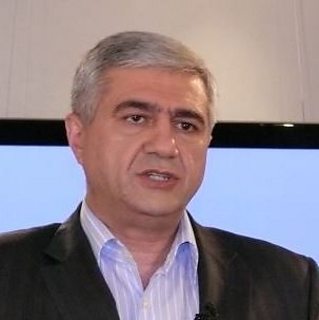In May 2023, we organised a conference, Serving audiences when they need it most: the key role of media in emergencies, in Yerevan to support our European Union-funded project, European Media Facility in Armenia.
International, local, and regional media experts came together to discuss the vital role that media plays during times of crisis. Those at the conference looked at how to provide audiences with essential and trustworthy information that can save lives, help people cope in difficult circumstances, and combat disinformation during emergencies.
The conference also featured keynote speeches, panel discussions, and workshops to provide attendees with practical insights and tools for media production and cross-sector coordination.
We followed up with some of our partners to explore their views and takeaways of the role of media in an emergency.
Susanna Shahnazaryan of Armenia’s Goris Press Club shares her thoughts on the challenges of working regional media, and what she learned from �鶹�� Media Action’s training.
Working in regional media in a conflict region presents a number of challenges. As well as having to consider the safety of our team, we have limited resources available - including financial, people, and professional skills. There are no support departments to help us. And journalists often focus on specific topics, so it can be difficult to produce new content about emerging issues.
The skills gained during the �鶹�� Media Action training, focusing on presenting social problems through human stories, have been very helpful for the team. Using these skills, we’re able to make our content even better by presenting a whole range of issues in each story, instead of focusing on a single story.
It’s very difficult to talk about tolerance in a conflict-affected region. We must remember the war is not yet over and we are still seeing human losses. As a result, we have to invest a lot of effort and time in the audience, when we talk about tolerance, ensuring security, and emphasising the need for development.
The �鶹�� Media Action resources are really important. As well as enabling us to reflect on current developments in our country and what they mean for our people, they help us to look after the professional needs of the team.
As surprising as it may be, regional media in Armenia are often less politicised than national media, because political life is focused on our capital city, Yerevan. This offers our regional journalists more opportunities in terms of themes they cover. And now we are able to use new media tools to write about human interest, non-political stories.
There’s a misconception that the most important news is always in the national news. We must remember that life in the regions also plays an important part in our national landscape.
I think it was also noticeable in our discussion in Yerevan how different our challenges are, especially our risks relating to tolerance.
Comparing experiences with other similar organisations is really helpful for Armenian journalists. It would be wonderful for those working in a small editorial office to have experience with media outlets across and even outside Armenia, to see how others plan their work, and how they find their stories.
Nikolay Grigoryan is director of the Artakarg Alik Information Centre, and has been working for many years with journalists about how to report in emergencies.
In �鶹�� Media Action’s training, we gained respect for the �鶹��’s editorial standards. The editorial guidelines are very helpful and showcase some really interesting examples. As well as being thought-provoking, the guidelines were a springboard for discussing and comparing similar cases.
I think the �鶹�� Media Action conference brought us closer to the �鶹�� and was a great opportunity to meet local partners. It helped us find out more about their work and our common concerns.
It was very important for us all to discuss emergency communications and how we apply our knowledge, skills and journalistic ethics. It raises many questions. Is the news helpful, harmful, hindering, human-centred, or just populism or sensational?
Armenian journalists working in emergency situations have to deal with a range of challenges, not least a lack of knowledge and professionalism. As well as needing to check and verify sources, experts and eyewitnesses, they also need to think about the questions they ask. Even when attending the scene of an accident, journalists are not prepared and don’t think of those preliminary questions.
It’s also a big challenge for Armenian journalists when state institutions and officials are unavailable. Without official sources, stories may be inconsistent and not objective – but often the media is in a hurry to break news. Too often they want to make instant, exclusive, sensationalist stories. The public want the news and expect to know what’s going on. They want to know what’s happened and what the governing bodies are doing.
Having worked in numerous roles in crisis management, since establishing the after the Spitak earthquake in 1988, I know reporting on emergency situations must be accurate. It has to be objective, impartial, reliable and trustworthy. I’ve covered all our disasters and wars over the last 40 years, and I know in emergency situations, a lack of accurate news creates rumours, misinformation, panic and chaos.
When dealing with crisis communications, it’s very important that everyone knows their place and role. They must recognise how information flows from the governing bodies, the response organisations, the news services, and the media.
I would welcome further work with �鶹�� Media Action and the Emergency Channel, to provide journalists with simulated scenario training.
As well as training Armenian journalists, this opportunity could be extended to help other stakeholders, including the government, ministries and departments, utility companies, international organisations and news services.
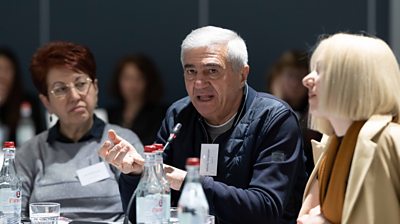
European Media Facility in Armenia – Building Sustainable and Professional Media project is implemented by DW Akademie, �鶹�� Media Action, Open Society Foundation – Armenia, Hetq/ Investigative Journalists NGO and Factor TV, and is funded by the European Union and the Federal Ministry for Economic Cooperation and Development (BMZ).
Latest Armenia stories
More stories from ArmeniaOur projects in Europe and Caucasus
-
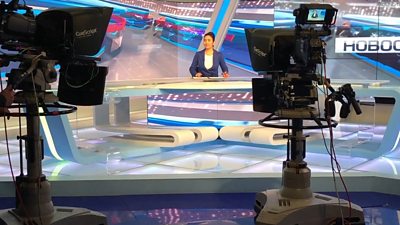
Support to independent media in the Eastern Partnership countries
We are working in Eastern Europe and the Caucasus to support public interest media. -
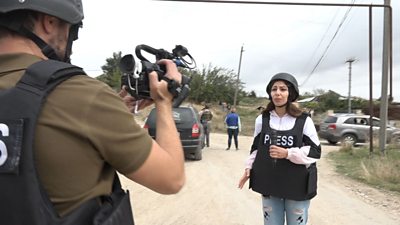
Strengthening Armenia’s vibrant independent media
We are working with students and public interest media to improve journalistic standards and ensure access to objective, impartial and trustworthy information. -
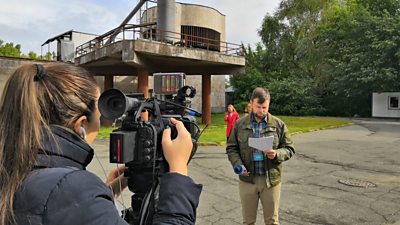
Supporting Ukraine’s new Public Service Broadcaster
Through two projects, we’re supporting the newly-established National Public Broadcaster in Ukraine, UA:PBC, to improve its capacity as an independent, impartial news broadcaster. -
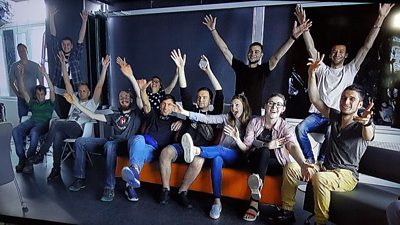
Supporting independent news in Ukraine
Media Action is working on a Good Governance Fund-supported programme to enhance the capacity of the Ukrainian TV station – Hromadske TV.
